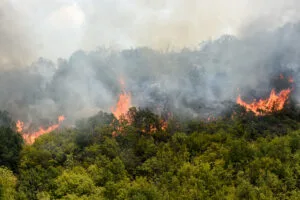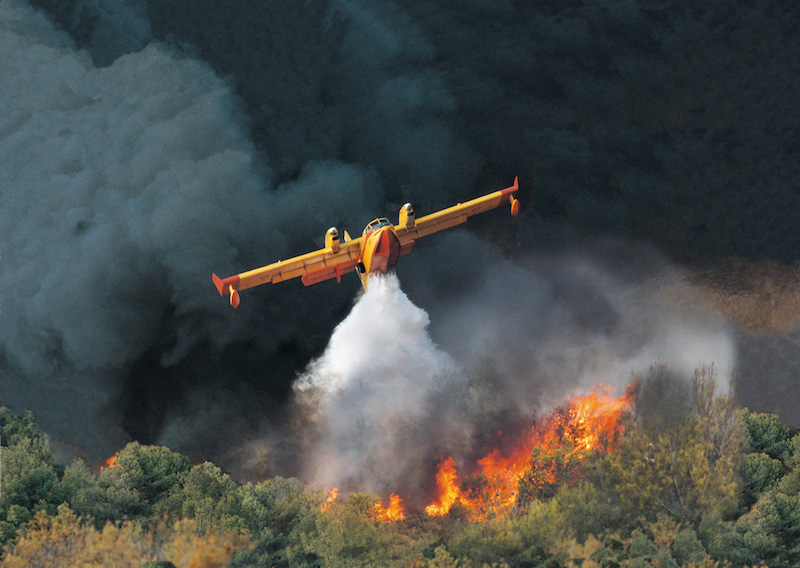Brussels – There is no respite for the Balkan Peninsula, where wildfires have been burning large areas of Albania, northern Macedonia, and Bulgaria for weeks. After the first interventions in mid-July, the EU Civil Protection Mechanism continues to operate in the region to help countries that require assistance in the face of emergencies that their forces alone cannot manage.

As of yesterday (July 30), two rescEu fleet aircraft from Italy flew to extinguish wildfires that broke out in Albania following the European Commission’s response to Tirana’s request. “In the constant fight against wildfires, the European civil protection responds immediately,” said Crisis Management Commissioner Janez Lenarčič. Only a day earlier, the EU Commission President, Ursula von der Leyen, announced that France and Greece already sent support to Bulgaria – again through the EU Civil Protection Mechanism – in the face of the wildfires raging in the member country. “This is EU solidarity in action.” In the last few hours, even Northern Macedonia said it was considering requesting further assistance from Brussels due to the risk of the situation getting out of control along the southern border with Greece because of the high temperatures recorded for weeks and the strong winds that facilitate the development and expansion of wildfires.
The EU Civil Protection Mechanism against wildfires
Instituted in 2001 by the Commission, the EU Civil Protection Mechanism is the tool with which the 27 member countries and nine other participating states (Albania, Bosnia and Herzegovina, Iceland, North Macedonia, Montenegro, Norway, Serbia, Turkey, and Ukraine) can strengthen cooperation in preventing, preparing for, and responding to disasters, particularly natural ones. One or more national authorities may request activation of the Mechanism when an emergency exceeds the response capacities of individual affected countries. The Commission coordinates the solidarity response of other participants with a single point of contact, contributing at least three-quarters of the operational costs of search and rescue and firefighting operations. It pools the best skills of rescue teams and avoids duplication of efforts.
Also part of the EU Civil Protection Mechanism is the European Civil Protection Pool, comprising pre-committed resources from member states ready for immediate deployment when needed. The Emergency Response Coordination Center is the operational heart and is active every day, 24 hours a day. In addition, there is the rescEu reserve, the fleet of firefighting aircraft and helicopters (as well as field hospitals and stockpiles of medical supplies for medical emergencies) to enhance the components of disaster risk management. For the summer of 2024, an emergency plan has been developed, including the pre-positioning of 556 firefighters from the European civil protection pool on EU territory and the doubling of the rescEu reserve fleet to 28 aircraft and four firefighting helicopters from ten countries – Croatia, Cyprus, France, Germany, Greece, Italy, Portugal, Czech Republic, Spain, and Sweden.
English version by the Translation Service of Withub







